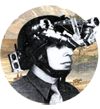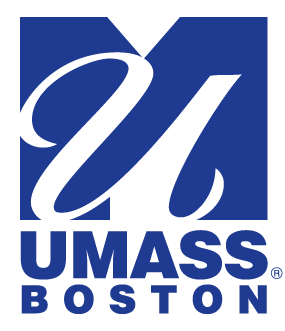Morgan’s Manual Round-up: Resources for VISTAs Who Hate Writing Manuals
Categories:
Morgan was a CTC VISTA Leader in 2007 (before we changed our name to the Digital Arts Service Corps) and while this round-up is a little dated it still contains some valuable resources.
Greeting VISTAs,
I don’t know about you but I HATE writing manuals – especially from scratch. If it has to do with showing someone how to use a computer using endless screenshots, reworked/inaccurate text instructions (that always seem to miss that TINY crucial step required to make the program ‘do-the-thing-that-you-want-it-to’) or a bloated MS Word ‘train-the-trainer’ manual - forget it. I just say DO A VIDEO TUTORIAL (plenty of them out there: http://www.socialsourcecommons.org/search/query?q=screen&submit=Search), host ‘em online and have your volunteers, tutors, managers and computer technology users watch them – much easier, always accurate and no typing – urg!
Of course, for those of you ARE crazy enough to undertake the devilish details of ‘computer lab manual creation’ - or a hardcover would simply be more fitting with your org and workplan - I present ‘Morgan’s Manual Round-up: 10 Resources for VISTAs Who Hate Writing Manuals’. Hopefully you don’t despise writing them THAT much - and it can be kinda satisfying to finish one, well, actually REALLY satisfying;)
After scouring the web - CTCnet, CTC VISTA, Stories For Change.net, The AmeriCorps National Resource Library and even our own CTCVISTA website - I handpicked these manuals based on a mix of reviews, personal use and relevance to our work as VISTAs – a hardworking VISTA in Washington inspired me (thanks Julia!). My personal fave is the YouthLearn Guide – great worksheets andwell written. Many of these guides can be found in the oft overlooked AmeriCorps VISTA National Lending Library. As VISTAs you have access to this SPECIAL COLLECTION of library resource materials to help you do what you do best as a VISTA (whether training volunteers, partnering with community orgs, or developing systems for the operation of your sites).
CTC Center Start-Up Manual
http://www.ctcnet.org/what/resources/startup_manual.htm
First published in 1997, the CTC Center Start-Up Manual is widely recognized as a principal guide for establishing CTCs and serves as an organized patchwork of CTC experiences. Toni Stone, founder of CTCNet, was principal author of previous editions of the Manual. With support from the Surdna Foundation, the manual was updated in January 2003 to reflect developing CTC experiences and needs.
Proof Positive: Developing Significant Volunteer Recordkeeping Systems, 21st Century Edition
http://nationalserviceresources.org/wgnsrclibrary/advancedsearch?action=...
Coordinate volunteers and develop computerized reports using this step-by step guide. Includes sample application forms, volunteer data files, assignment records, and time and activitiy reports. Ideas are offered for documenting hard-to-track activities. Information is provided for people doing manual file keeping as well as how to make the most out of computer software.
50 One-Minute Tips for Trainers
http://nationalserviceresources.org/wgnsrclibrary/advancedsearch?action=...
Examines the purpose and importance of training and development programs, and discusses tips to consider before training an audience. Includes determining needs, preparing a training manual, understanding how adults learn, and organizing a presentation.
The Community Collaboration Manual
http://nationalserviceresources.org/wgnsrclibrary/advancedsearch?action=...
Explores the options for building and sustaining collaborations. Discusses how to maintain the momentum of a collaboration, how to involve youth and business, and the role of the media in contemporary collaboration.
National Service Stress Survival Guide: Facilitator Guide and Training Manual
http://nationalserviceresources.org/wgnsrclibrary/advancedsearch?action=...
Provides facilitator guide and training materials to help national service programs combat stress. Group and individual exercises provide opportunities for self-assessment, reflection, and educational interaction. Includes handouts, self-tests, stress-reducing exercises, a resource list for participants, and a brief section called "Getting Things Done Without Burning Out."
Training the Trainer
http://nationalserviceresources.org/wgnsrclibrary/advancedsearch?action=...
Manual for use in workshops by trainers of tutors. Includes the training components of presentation, demonstration, practice, and follow up.
Creative Narrations Digital Storytelling Curriculum: Instructor Guide
http://storiesforchange.net/resource/creative_narrations_digital_storyte...
A guide to running digital storytelling workshops
Working with Technical Volunteers: A Manual for NPOs
http://www.techsoup.org/learningcenter/volunteers/page5095.cfm?cg=search...
CompuMentor has developed an effective methodology for recruiting, matching, and managing technical volunteers. You can use this downloadable guide to assess your technical needs and identify areas where volunteers can help; recruit technical volunteers and assess their skills; manage technical volunteers; document their work; and find resources that will help your volunteers throughout the process.
AND REMEMBER:
“Never doubt the importance and relevance of your efforts. The benefits to the community you are serving are perhaps only outweighed by the benefits this service will bring to you in turn.” - Brandon Rogers, former VISTA and author of “The Effective Education Award”, a guide for helping AmeriCorps members make the most of their ed award.










